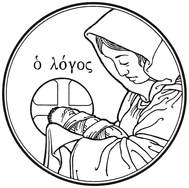
In the beginning God created all things through His Word, His Son. But man fell into sin, and with man all creation was cursed. Therefore, God spoke His Word again, this time into the womb of the blessed Virgin Mary. The glory of the Lord filled the tabernacle of our human nature (Ex. 40:17–21, 34–38, First Lesson). “The Word became flesh and dwelt among us” (John 1:1–14, Holy Gospel). The Son of God took on our flesh and blood and died on the cross in order that we might receive the right to become the children of God through faith. Baptized into Christ’s body, we are made partakers of a new Genesis, “the washing of regeneration and renewal of the Holy Spirit” (Titus 3:4–7, Second Lesson). In Christ, the kindness and love of God our Savior toward man has truly appeared.
0 Comments
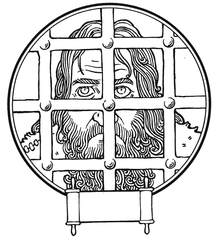
The voice of the Baptizer cried out in the wilderness: “Prepare the way of the Lord…” (Isa. 40:1). John called the people to be made ready for the Messiah’s coming through repentance, for “all flesh is grass” (Isa. 40:6). Now He asks from prison, “Are you the one who is to come…?” (Matt. 11:2). Jesus’ works bear witness that He is. The sick are made well; the dead are raised, and the poor have the Gospel preached to them. Their iniquity is pardoned; they have received from the Lord’s hand double forgiveness for all their sins. The “stewards of the mysteries of God” (1 Cor. 4:1) still deliver Christ’s overflowing forgiveness to the poor in spirit, comforting God’s people with the word of the Gospel which stands forever. This Gospel produces rejoicing among all those who believe.
The Third Sunday of Advent is traditionally known as Gaudete, which is the first Latin word of the Historic Introit assigned to this Sunday from Philippians 4. Gaudete means “rejoice” (Gaudete in Domino semper = “Rejoice in the Lord always”). In some parishes, including our own, a rose-colored candle is used in place of another blue or purple candle. This lighter tone is meant to “soften” the tone of repentance and preparation within the Advent season with a message of joy and expectation.
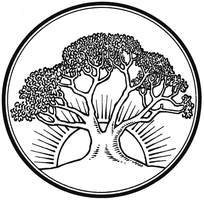
The day on which our Lord returns will be a “great and awesome day” (Mal. 4:5, First Lesson). For He will come in a cloud with great power and glory. To the wicked and the proud, it will be a Day of judgment that will “set them ablaze” (Mal. 4:1). The signs preceding this Day will bring them fear and fainting. But to those who believe, who fear the name of the Lord, this Day is one to look forward to and rejoice in: “. . . straighten up and raise your heads, because your redemption is drawing near” (Luke 21:28, Gospel Lesson). Christ our Redeemer is coming; the Sun of Righteousness will bring healing in His wings. Let us, then, give attention to the words of the Lord, which do not pass away. Let us “through endurance and through the encouragement of the Scriptures” (Rom. 15:4, Second Lesson) be strengthened in our hope by the Holy Spirit and watch diligently for Jesus’ coming. Then, by God’s grace, we shall escape all these things that will come to pass and stand before the Son of Man.
The Second Sunday of Advent is traditionally known as Populus Zion, which are the first Latin words of the Historic Introit assigned to this Sunday. Populus Zion means “People of Zion” (Populus Zion, ecce Dominus veniet ad salvandas gentes = “People of Zion, behold the Lord shall come to save the nations”).
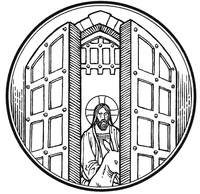
The new Church Year begins by focusing on the humble coming of our Lord. “Look, your King comes to you, humble, and riding on a donkey, on a colt, the foal of a donkey” (Mt. 21:5; Gospel Lesson). Even as He was born in a lowly manger, so Jesus rides into Jerusalem on a beast of burden. For He bears the sin of the world. He is the Son of David riding to His enthronement on the cross, where He shows Himself to be “The Lord Our Righteousness” (Jer. 23:5–6; First Lesson). Our Lord still comes in great humility to deliver His righteousness to us in the Word and Sacraments. Before receiving Christ’s body and blood, we also sing, “Blessed is he who comes in the name of the Lord! Hosanna in the highest!” (Matt. 21:9) And as we receive the Sacrament, we set our hearts on His return in glory, for “our salvation is nearer now than when we first believed” (Rom. 13:11; Second Lesson).
The First Sunday of Advent is traditionally known as Ad Te Levavi, which are the first Latin words of the Historic Introit assigned to this Sunday from Psalm 25. Ad Te Levavi means “to you, I have lifted up” (Ad te levavi animam meam Dominum = “to you, O Lord, I have lifted up my soul"). An Introit is a chanted or spoken psalm that traditionally followed the Confession and Absolution and preceded the Salutation (“The Lord be with you.”) that begins our Service of the Word (p. 7). Introit means “entrance,” and it was during this psalm that the pastor or priest and those involved in the service would “enter” the chancel and altar area.
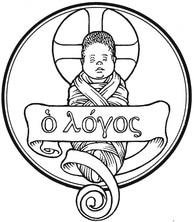 With the glory of the Lord still shining from Luke 2, we assemble once again to celebrate with joy the Word made flesh. The mystery of the incarnation is beyond us. Yet we are blessed to participate in him who is born the Bread of Life in the House of Bread. How beautiful is the good news! How radiant his glory! How perfect his timing! How gracious is the Father to give us his son for us and for our salvation!
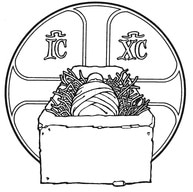 Within the Church Year, the Festival of Christmas is actually celebrated on Christmas Day (as we will do tomorrow morning). The Festival of Christmas, like the festival of Easter, is celebrated with a vigil. The word “vigil” is from the Latin word meaning, “watchfulness.” Our English word “vigilant,” is a derivative of this word. As we have heard during the season of Advent, we were encouraged to prepare our hearts for the coming of Christ and to keep watch—to be vigilant for the coming of Christ. Tonight, we see the culmination of the Advent season as we “keep watch” for Christmas Day. In modern times, vigils have been used to commemorate or observe an important or tragic event or the death of a notable or significant person. They are usually celebrated in a muted and calm way, and often involve the use of candles. In the Christian Church vigils have been used in very much the same way. However, the focus has always been and will always be on Christ. Traditionally the Christmas Vigil has been celebrated late in the evening in order that the end of the service coincides with the changing from December 24th to December 25th at midnight. Tonight, with Christians around the world, we gather once again at the Christmas Vigil, waiting and watching for the coming of Christ as a child in Bethlehem.
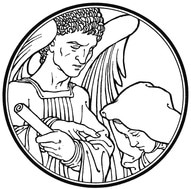 What’s the best way to prepare for his coming? It’s not with frantic doing. It’s not with a focus on what we have done or promise to do. It’s not with how we will pay back what he comes to bring. The best preparation for Christmas is a readiness to receive.
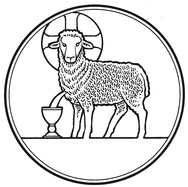 The Third Sunday of Advent was once called Gaudete (“rejoice”) Sunday, from the first word of the Verse of the Day: “Rejoice in the Lord, always; again I say rejoice! The Lord is near” (Philippians 4:4,5). In some parishes, including our own, a rose-colored candle is used in place of another blue or purple candle. This lighter tone is meant to “soften” the tone of repentance and preparation within the Advent season with a message of joy and expectation.
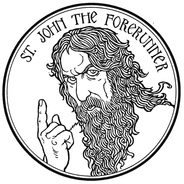 Since his coming is sure and so important, Christ sends out forerunners in the footsteps of St. John the Baptist who help us to make proper preparation for his coming. They do that with a message not their own. They do it with the message that he himself has given. Pay close attention to those heralds of the coming Lord, the prophets and apostles, and to the pastors and teachers in our midst who have succeeded them to get us ready for his coming.
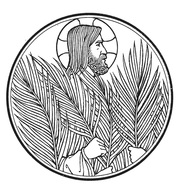 Our King, Jesus, is coming. He first came with palms and the singing and shouting of the crowd into Jerusalem. He comes as a triumphant king, yet he is riding on to die. Through the waving palms and the crowded street we see the true willingness of our Lord to suffer in our place. Our King, Jesus, is coming. But now we wait for him to come on the clouds. We cling to God’s gracious love in Christ as we prepare and wait for the Savior’s return.
|
Archives
February 2019
Categories
All
|
||||||||||||||||||||||||||||||||||||||||||||||||||||||||||||

 RSS Feed
RSS Feed
